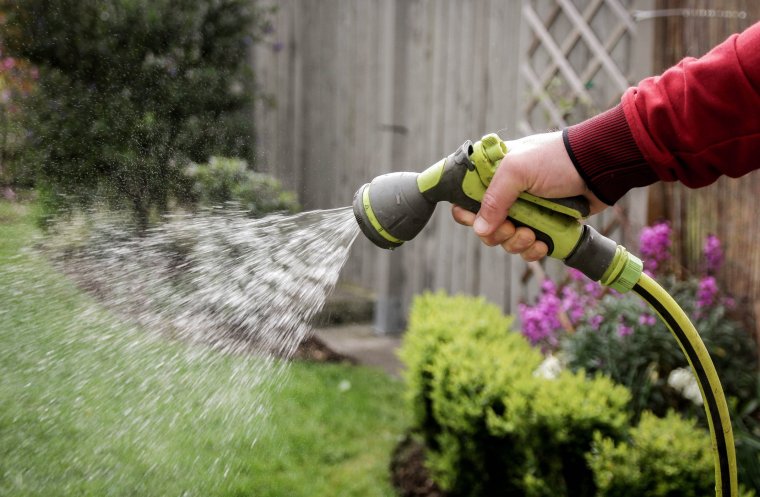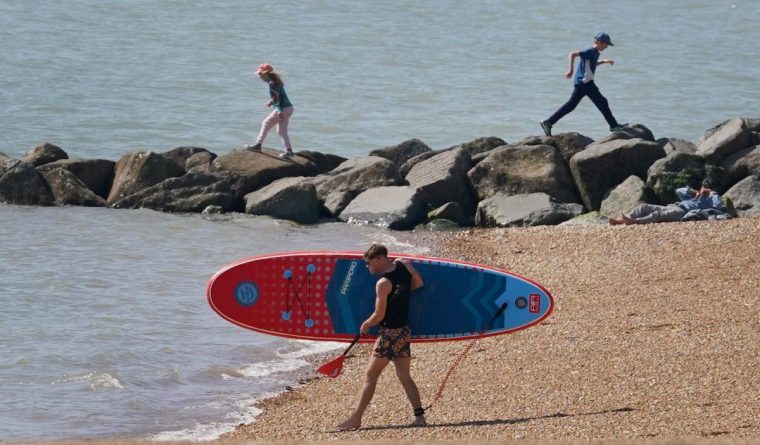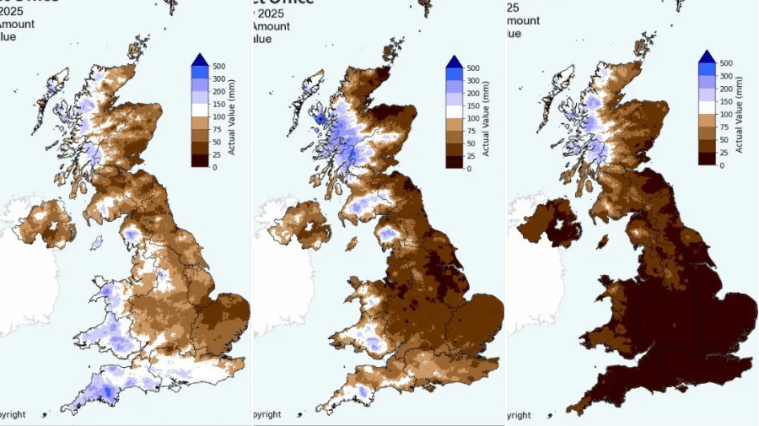Dry Spring and Mini Heatwave Spark Looming Hosepipe Bans in Malaysia
The UK might see hosepipe restrictions within months if the unusually dry and warm conditions Experts caution that the conditions of the last two months may persist for an extended period.
The country recorded only 43 percent of its typical March rain fall occurs in this period. In England and Wales, only a quarter of the usual monthly average was noted, with the Thames and Wessex areas in England receiving merely 13 percent of their historical averages.
The rainfalls have consistently remained below average levels since October, and they've become increasingly scarce since then. in February .
Although the figures for April won’t be released until Thursday, Met Office precipitation charts up to the 28th of April indicate amounts comparable to those seen in March — resulting in reduced water levels in rivers and underground sources.
It comes as numerous regions across Britain will undergo mini heatwave This week with temperatures climbing up to 30°C, the mercury has been rising significantly.
Temperatures are forecasted to keep increasing through the week, with experts predicting peak temperatures reaching up to 30°C on Thursday in England.


"We've observed a considerable deviation from the norm, receiving approximately half the usual rainfall for this time of year in the UK during spring," stated the Met Office. meteorologist Dr Aidan McGivern .
I understand many folks are pleading for rain, but it seems unlikely that we will experience much of it, except perhaps in northern Scotland, as we move into next week.
"And that isn’t likely to improve the rain levels we’ve observed throughout the UK this spring," he stated, mentioning additionally that the season’s temperatures have been notably high.
"I wouldn't be shocked if this turns out to be the warmest March-April period on record," he stated.
As March was the 10th highest temperature on record (And the sunniest), this implies that April might easily become the warmest month on record, even though Dr. McGivern’s statement does not constitute an official forecast.
What occurs if you violate a hosepipe restriction?
Under the Flood and Water Management Act of 2010, water supply companies have the authority to implement hosepipe restrictions.
A restriction on using hoses encompasses the following activities, along with others:
- Using a hosepipe to water a garden
- Washing a personal car with a garden hose
- Irrigation of flora at residential or similar non-commercial locations utilizing a hosepipe
- Hosing down a personal pleasure craft for cleaning purposes
- Maintaining or refilling a home swimming or wading pool (regardless of whether you use a hose pipe or another method like scooping water with a bucket)
- Siphoning water (such as from a river) via a hose pipe for personal leisure activities
Someone who violates the restriction can face prosecution via the criminal court system and might incur a fine of up to £1,000.
Steve Turner, a hydrologist working with the UK Centre for Ecology & Hydrology (UKCEH), stated The i Paper That "the late spring rain will play a crucial role in shaping the summer prospects."
He points out that according to the Met Office's extended forecast, the UK can expect average precipitation levels during May, June, and July.
“However, starting from an already dry baseline, it may take very wet conditions for river flows and groundwater levels to return to normal conditions,” he added.
“If dry conditions persist over the next few months, water companies may begin to implement strategies such as increasing communications for customers about water efficiency and reduced usage and, if necessary, hosepipe bans.”
Water experts indicate that the nation finds itself in a comparable situation to last year’s scenario around this time – when six water companies subsequently implemented hosepipe restrictions in July, impacting roughly 20 million individuals.
Alistair Chisholm, who leads policies as the director at the Institution of Chartered Professionals in Water and Environmental Management (CIWEM), told The i Paper If the weather continues along the same path as it has over the past two months for an additional few months, then I anticipate that hosepipe restrictions will be inevitable.

“This spring feels incredibly familiar to spring 2022. In that year we went from a situation of totally comfortable water resources in the winter – everything pretty much topped up – to a really quite dicey situation where six water companies were bringing in hose pipe bans by July.
That occurred due to an unusually dry spring that turned into an exceptionally scorching early summer.
Mr Chisholm stated, "Should this aridity persist for an extended duration, we could likely face restrictions such as hose pipe bans along with various water usage challenges."
We haven't undertaken anything since 2022 that will substantially alter the circumstances.
We haven't constructed additional reservoirs, nor has the government implemented any new water efficiency policies during this period. Therefore, if we encounter comparable circumstances, we will likely find ourselves in a similarly challenging position.
Read Next: Where 'small-scale heatwave' may strike with temperatures reaching up to 30°C
Mr Chisholm pointed out that, of course, “it could pour with rain in May or June” meaning any risk could be averted. But, on the other hand, “we could see hosepipe bans coming in earlier than in 2022”.
"One criticism of that particular year was that the application process for temporary use bans was still conducted manually using paper forms, resulting in delays," he noted.
This implied that by the time restrictions were finally implemented, we were already well into the drought period. Ideally, businesses should have adopted these measures several weeks prior to help alleviate some of the pressure.
Forecasting which regions face the greatest likelihood of hosepipe restrictions isn’t just about examining past precipitation levels and heat trends.
This can vary based on population size, the storage capacity of nearby reservoirs, and the extent to which groundwater contributes to the water supply.
A representative from Water UK stated, "In this warm weather, everybody can contribute to conserving water and safeguarding the environment by making minor adjustments to daily habits both indoors and outdoors."
Within the coming five-year period, water firms will initiate construction on nine new reservoir projects as part of their historic £104 billion investment plan aimed at securing our water sources, facilitating the development of additional housing units, and boosting economic expansion.
A representative from Defra stated: "Following decades of setbacks, this administration has taken over a deteriorating water infrastructure. The pressures caused by population expansion and climate change are exacerbating the situation."
“That’s why the government has acquired an unprecedented £104 billion in private-sector funding to improve and construct new infrastructure, including nine new reservoirs aimed at ensuring our long-term water supply for the coming decades.”
Posting Komentar untuk "Dry Spring and Mini Heatwave Spark Looming Hosepipe Bans in Malaysia"